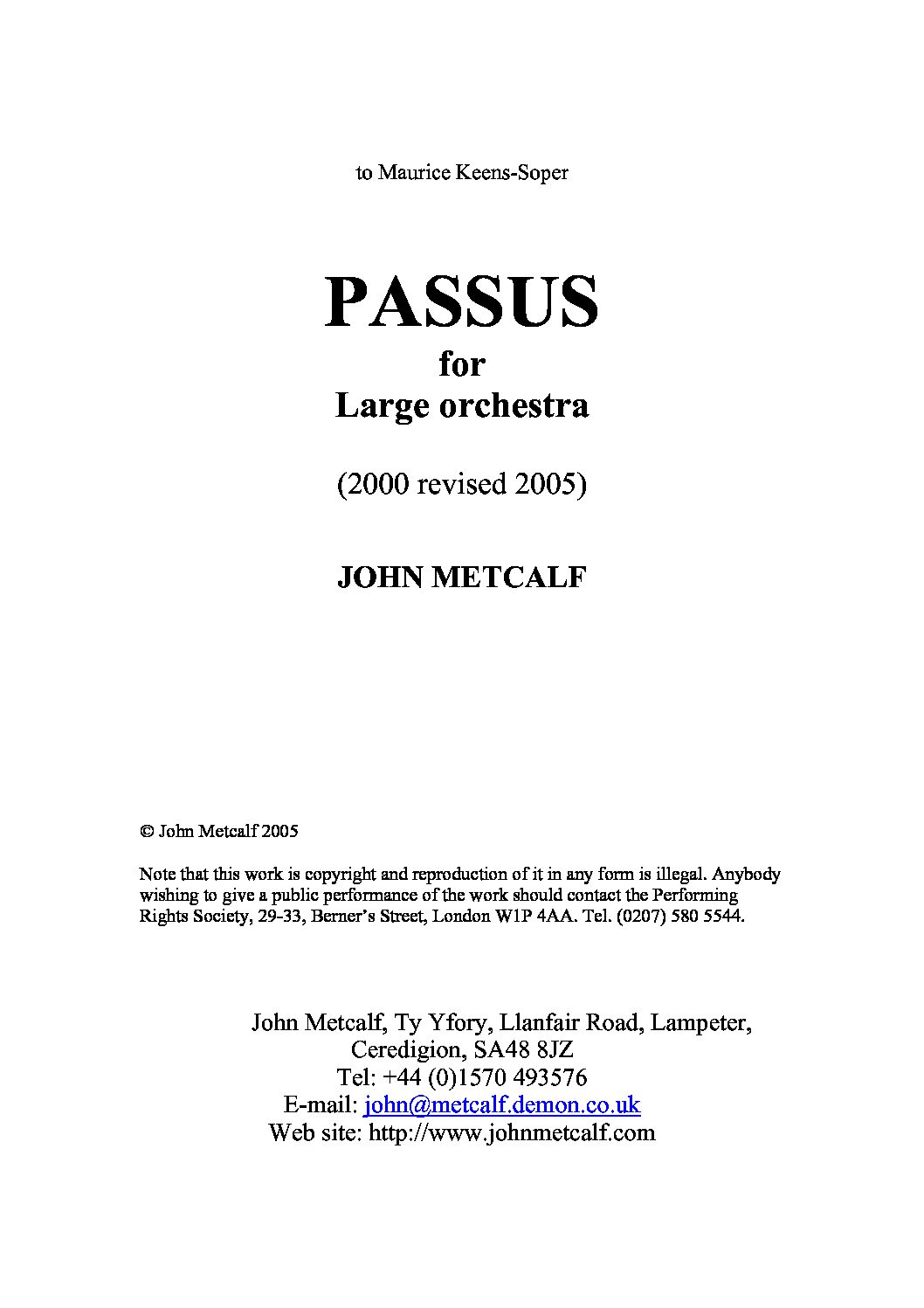Programme Note
In writing this work I was conscious that, for all our ideals, our leaps of imagination, our idealistic endeavours, progress in humanity is slow. Some even say that there is no progress; that the concerns and challenges of human nature are in an ever- circling state. The path to heaven, if there is one, climbs steeply up. The views that it offers are very gradually revealed and, while at times remarkable vistas suddenly appear, the process of arriving at them is often slow and painful. At the same time, a false step can send us tumbling down. As the way up is slow, the route down can be very swift. A single brush of the hand can destroy at a stroke the remarkable genetic engineering of a spider’s web. How many times have we seen this in human circumstance, for example in ethnic conflicts ? At times the heart and spirit can rage at and mourn for this seemingly fruitless, apparently tragic endeavour. ‘Passus’ is Latin for step or steps; the same word also means suffering.
Musically, ‘Passus’ is a very unusual work. Indeed, I don’t know another like it. To mirror its philosophic basis I have built the 17 minutes of music entirely around adjacent notes, both diatonic and chromatic. So there are no leaps at all in the piece. This, of course, tends to produce a very rigorous, tightly-focused and symphonic type of composition. Surprisingly, it is also a very broad work with a passionate scenario, a swiftly developing storyboard of musical events. There are predominantly short sections and the piece is at different times austere, rhythmic, powerful, desolate, majestic and, ultimately, joyful. Like other deeply felt single movement works, for example Schoenberg’s ‘Verklarte Nacht’ (a structural and philosophic, rather than musical, source of inspiration for this piece), it is an emotional journey. As the piece unfolds musically one of the steps gradually asserts itself and becomes more and more prevalent – a single rising major second.
I am grateful to my friends in Swansea, in particular the Executive Committee of the Swansea Festival, for instigating this commission. Thanks go to them for honouring me with this commission in the millennium year, and thanks also to Eurig Thomas for a number of stimulating artistic suggestions for the work.
Passus was commissioned by the Swansea Festival 2000 with funds made available, in part, by the Arts Council of Wales.
